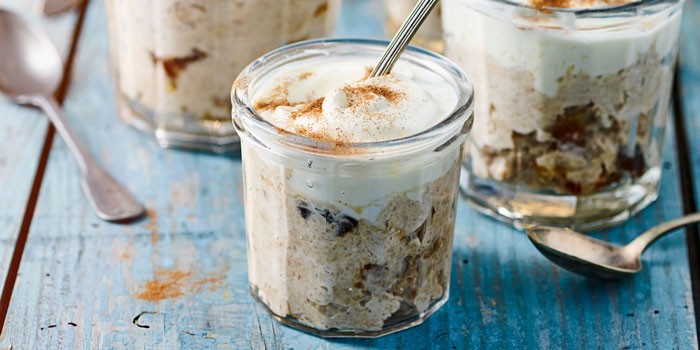Discover the nutritional benefits of dates, from their vitamin, mineral and fibre content, to how many of these sweet, sticky fruits count towards your 5-a-day
There are lots of different varieties of the fruit, but the medjool date is one of the best known, as it has a sweeter and stickier taste and texture than others.
Health benefits of dates may include:
- Rich in antioxidants
- High in fibre, so supports gut health
- Contains magnesium and calcium
- Help facilitate a natural birth
- Date syrup is a lower-GI sweetener
Nutritional profile of dates
A 30g serving of dates (dried) provides:
- 81 kcals / 345KJ
- 1g Protein
- 0.1g Fat
- 20.4g Carbohydrates
- 20.4g Sugar
- 1.6g Fibre
- 210mg Potassium
A serving of 30g of dates counts as one of your five-a-day.

Are dates good for you?
1. Rich in protective antioxidants
Dates are a rich source of protective plant compounds which have antioxidant properties. These include polyphenols, carotenoids and lignans, which have been shown to help manage the risk of chronic disease.
2. May support gut health
Research into fibre continues to support its important role in health, from helping to maintain a healthy gut microbiome to reducing the risk of certain long-term health conditions.
A small 2015 study found that date consumption may reduce colon cancer thanks to its high fibre and polyphenol content, the latter also having useful anti-microbial benefits.
3. May support bone health
Dates are a source of bone-friendly minerals including phosphorus, potassium, calcium and magnesium. They are also a source of vitamin K which is needed for healthy, strong bones.
4. May facilitate a natural birth
Including dates in the diet when in the final few weeks of pregnancy may promote cervical dilation and reduce the need for an induced birth. They are also thought to be helpful in reducing the length of labour. Compounds in the fruit are believed to mimic the effects of oxytocin, a hormone involved in labour contractions.
5. May be a useful sugar replacement
Date syrup is a paste made by blending dates with water. The syrup has a low Glycaemic Index (GI) and a lower fructose content than most other sweeteners.